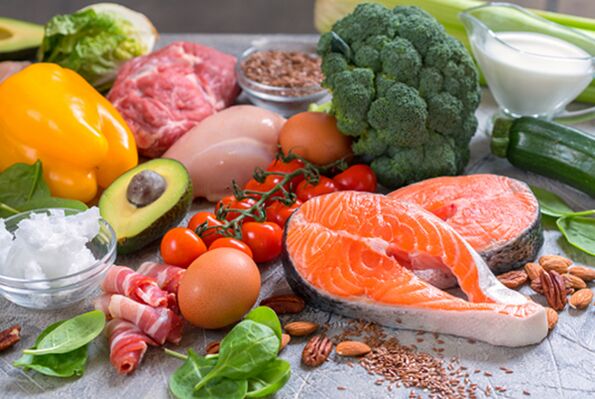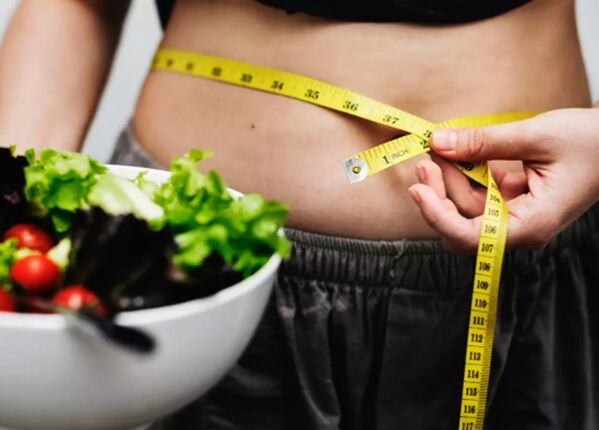
Who is the amount of protein, fat and carbohydrate listed on the product for? Of course, for those who follow any kind of diet. Therefore, those who follow the low-carb option, first of all, pay attention to the fact that the carbohydrate content of the product does not exceed a certain amount.
Who needs a low-carb diet and why?
One such diet is to reduce or completely refuse foods that are high in carbohydrates. Originally, the diet was developed for athletes. Now such food is used most often by 3 types of people:
- People who want to lose weight.
- Glycorrhea patient.
- The athletes themselves.
Carbohydrates in foods are sugars. It doesn't matter that some high-carb foods aren't sweet at all. When processed in the body, any carbohydrate becomes sugar. That's why diabetics, who have high blood sugar, stick to a carbohydrate-free diet.
In addition, scientists have proven that it is the excess sugar in food that will be stored in the human body as fat. Therefore, people with weight loss needs also apply low-carb diets. Athletes just need to keep themselves in good shape. Other names for low-carb diets are ketogenic or protein diets.

When eating a low-carb diet, people reduce their intake or eliminate from their diet:
- Bakery products.
- Sugar and any sweets.
- Some vegetables: potatoes, pumpkin.
- Sweet fruits: bananas, apricots and berries: cherries, grapes.
- Store juice.
- Certain grains: rice.
- Pasta.
And this is not an exhaustive list. But does everyone need the same diet? After all, each of them has pros and cons.
Diet expert
Nutritionists and general therapists recommend a low-carb diet not just for people who are losing weight and those who are sick. You can also limit the amount of carbohydrates you eat to allow your body to eat normally. But in general, such a diet has many advantages:
- Support for the body. Anyone, not just the sick, should take care of their health, as an excess of carbohydrates will act like a ticking time bomb. Constantly eating too many foods with high carbohydrate content will gradually destroy the body.
- With a low-carb diet, the body's sensitivity to insulin increases, so the pancreas produces less insulin. This allows you to protect yourself from an incurable disease - diabetes. So, a big plus of the diet is the prevention of serious diseases.
- For those who are losing weight, the plus point is that you can eat more carbohydrate-free foods and still lose weight. Some people find it difficult to limit their food intake, so eating no carbohydrates is a great option. For example, meat does not contain carbohydrates.
- You can lose weight in a short time.
- Low-carb foods don't necessarily mean going to the specialty store or buying something special. All food is sold in normal supermarkets near home in any city or village: I got it and bought it.
- Price of the problem. It doesn't cost much to go on a diet. You buy the usual healthy products you are used to: meat, fish, vegetables, dairy foods. On the contrary, if you give up some of the sweets, there will even be a savings.
- Even low-carb menus are easy to find on the internet. Lots of information with tables, recipes and other helpful tips. You don't have to figure out what and how for yourself. And even more to visit the nutritionist to come up with a diet. Just download and print your daily ration.
- You can stick to such a diet for a very long time. Over time, the cravings for sweets will go away, and after a few years, the usual dose of sugar will seem sweeter.
- Such a diet is considered the lightest and "softest", unlike some other diets. If everything is done correctly, then there will be no stress on the body and disadvantages will be avoided.

Minutes
It is not in vain that students are advised to eat a chocolate bar before an exam. Sugar is energy and sweets are a quick way to get it. Therefore, a low-carb diet is not for everyone. Some people should be aware of the downsides of their diet and avoid low-carb diets.
- People who are mentally or physically stressed should not follow such a diet. And one, and the second need the same energy that a person does not get without carbohydrates.
- Although diabetics should limit their intake of carbohydrates, it should be noted that their complete absence can lead to low blood sugar - hypoglycemia, which is very dangerous.
- It is worth avoiding such a diet and those suffering from frequent edema. It is advisable to drink plenty of water on a low carb diet, and this will lead to more swelling.
- You can not adhere to such a diet for children and adolescents (with the exception of obese people). The body during growth needs a normal rather than low carbohydrate intake to grow.
- Pregnant and lactating women should not diet. You may want to lose weight after giving birth, but the health and development of your baby is most important.
- On a low-carb diet, a person eats more protein and fat. It is harmful to heart patients and people with kidney problems. Regarding the diet, kidney stones have been reported.
- Sometimes this regimen is accompanied by headaches and constipation. If these side effects occur, you should stop eating foods that do not contain carbohydrates.
- With a low-carb diet, when limiting sugary foods, cravings will become very strong. Not everyone can withstand this craving, as a result they fail, and all the benefits of this diet will be dissipated.
- Due to drowsiness during the start of the diet, drivers and people in charge of important items should use caution.
Result
Any diet, including a low-carbohydrate diet, puts a lot of stress on the body, so you shouldn't suddenly give up sugary foods. The transition to a carbohydrate-free diet should be smooth, watch your reaction. Only in this case will there be some advantage from the diet and it will be possible to avoid all the disadvantages listed. You should try to see if a low-carb diet is right for you.














































































